Independent Trades in Construction
Independent trades are vital to Lincolnshire’s construction sector, providing specialised skills that ensure the successful completion of residential, commercial, and specialist projects. From joinery to waste management, these trades underpin the quality and functionality of every build, while offering rewarding careers for skilled professionals.

This area of the sector includes a mix of small businesses and self-employed sole traders, making it ideal for individuals who enjoy working independently or running their own enterprises. Each trade contributes to creating vibrant communities, supporting local economies, and preserving Lincolnshire’s heritage and modern infrastructure.
Common independent trades
We’ve highlighted nine of the most common independent trades that the construction sector is reliant upon, however there are many, many more.
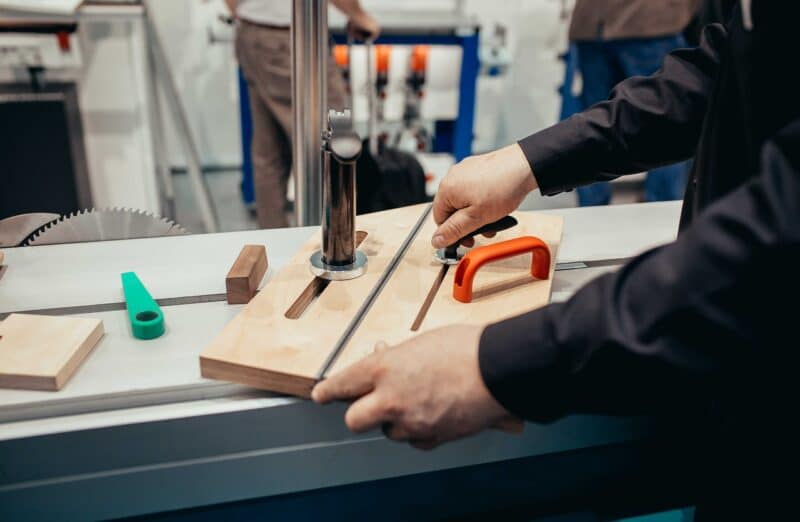
Joiners
Joinery is essential to all areas of construction, creating custom woodwork that enhances the functionality and aesthetic of buildings. Joiners craft and install doors, windows, staircases, and bespoke furniture for residential homes, commercial offices, and heritage restorations. Their work blends traditional craftsmanship with modern techniques, often using sustainable materials to align with eco-friendly practices.
In specialist construction, joiners contribute to creating intricate woodwork for historic buildings or unique designs for data centres and educational spaces.
Working as a joiner is ideal for individuals with precision, creativity, and an eye for detail. Day-to-day tasks include measuring and cutting timber, assembling frameworks, and installing finished pieces on-site. Joiners often collaborate with architects and designers to achieve bespoke results.
This trade offers opportunities to specialise in areas like restoration joinery or modern carpentry, making it both diverse and rewarding for those passionate about woodworking.

Bricklayers and plasterers
Bricklayers and plasterers are at the heart of construction, laying the foundations and finishing touches for buildings across Lincolnshire. Bricklayers construct walls, chimneys, and structural supports, while plasterers apply smooth, durable finishes to interior and exterior surfaces. In residential and commercial construction, they help create sturdy, long-lasting homes, offices, and retail outlets.
For specialist projects, bricklayers restore historic masonry, and plasterers recreate traditional finishes for heritage landmarks.
Working as a bricklayer or plasterer is perfect for those who enjoy hands-on roles and transforming raw materials into lasting structures. Daily tasks include mixing materials, setting bricks or stones, and applying plaster or render to surfaces. These trades require strength, attention to detail, and a commitment to quality.
Opportunities to specialise in heritage techniques or sustainable materials make these trades both versatile and essential to Lincolnshire’s construction landscape.

Electricians
Electricians are critical to powering Lincolnshire’s construction projects, from wiring new homes and offices to installing advanced systems in data centres and renewable energy sites. Their work ensures buildings are safe, energy-efficient, and equipped with modern technologies. Electricians handle tasks like wiring, installing circuit breakers, and integrating smart systems.
In specialist construction, they may set up complex electrical networks for healthcare facilities or renewable energy installations.
Working as an electrician is ideal for individuals who enjoy problem-solving and working with cutting-edge technology. Daily responsibilities include reading blueprints, testing systems, and troubleshooting electrical faults. Electricians play a vital role in ensuring safety and efficiency across construction projects.
This trade offers opportunities to specialise in areas like renewable energy or high-tech systems, making it a dynamic and in-demand career choice.

Plumbers
Plumbers ensure the smooth operation of essential water systems in Lincolnshire’s residential, commercial, and specialist construction projects. They install and maintain pipes, heating systems, and fixtures in homes, offices, and public facilities. In specialist construction, plumbers play a key role in fitting medical-grade plumbing for healthcare facilities or complex systems for renewable energy projects. Their work ensures comfort, hygiene, and functionality across all types of builds.
Working as a plumber suits individuals who enjoy technical challenges and practical problem-solving. Daily tasks include installing pipes and fixtures, repairing leaks, and testing systems for efficiency. Plumbers work closely with other trades to integrate their systems and workflow seamlessly into buildings and construction projects.
With opportunities to specialise in eco-friendly technologies or complex infrastructure, this trade offers a fulfilling and varied career path.
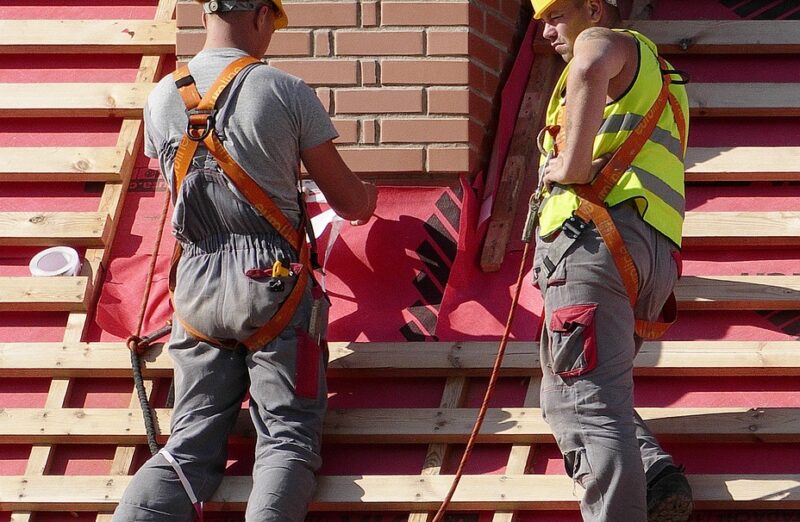
Roofing and cladding
Roofers and cladders provide the essential outer layers that protect Lincolnshire’s buildings from the elements. Roofers install and repair roofs using materials like tiles, metal, and eco-friendly options such as green roofing. Cladders apply exterior panels that enhance insulation and aesthetics for residential, commercial, and specialist projects.
From heritage restorations to modern office spaces, these trades ensure buildings are durable, energy-efficient, and visually appealing.
Working in roofing and cladding is perfect for those who enjoy outdoor and physical work and take pride in creating weatherproof structures. Daily tasks include measuring and cutting materials, installing insulation, and securing panels or tiles. These trades require physical stamina, precision, and an understanding of building regulations.
Opportunities to work on innovative designs or historic restorations make roofing and cladding a dynamic and rewarding career.

Painters and decorators
Painters and decorators add the finishing touches that bring Lincolnshire’s construction projects to life. They prepare surfaces, apply paint, and create decorative finishes for homes, offices, and specialist facilities.
In heritage projects, they replicate historical colour schemes and traditional techniques, while in modern builds, they enhance interiors with innovative materials and designs. Their work ensures every project looks polished and professional.
Working as a painter and decorator is ideal for individuals with an eye for detail and a passion for design. Daily tasks include preparing surfaces, mixing colours, and applying finishes with precision. Painters and decorators often collaborate with designers and clients to achieve specific aesthetic goals.
This trade offers opportunities to specialise in areas like restoration work or contemporary techniques, making it a versatile and creative career choice.
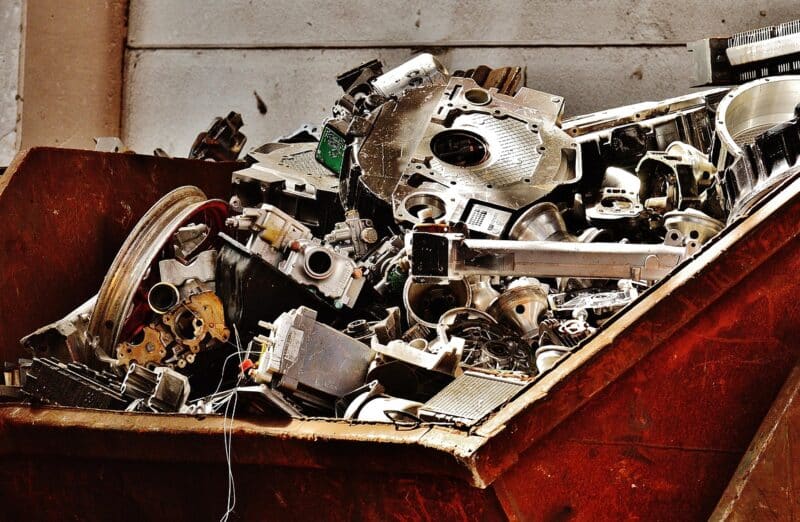
Waste and recycling specialists
Waste and recycling specialists play a vital role in maintaining sustainability across Lincolnshire’s construction sector. They manage the disposal and recycling of materials like concrete, timber, and metal, ensuring minimal environmental impact.
Their work supports renewable energy projects, heritage restorations, and large-scale housing developments by keeping sites clean, safe, and compliant with environmental regulations.
Working as a waste and recycling specialist suits individuals who are environmentally conscious and detail-oriented. Daily tasks include sorting materials, operating recycling machinery, and coordinating with construction teams to manage waste effectively.
This trade is essential to promoting sustainable practices in construction and offers opportunities to work on innovative recycling initiatives that benefit the environment and local communities.
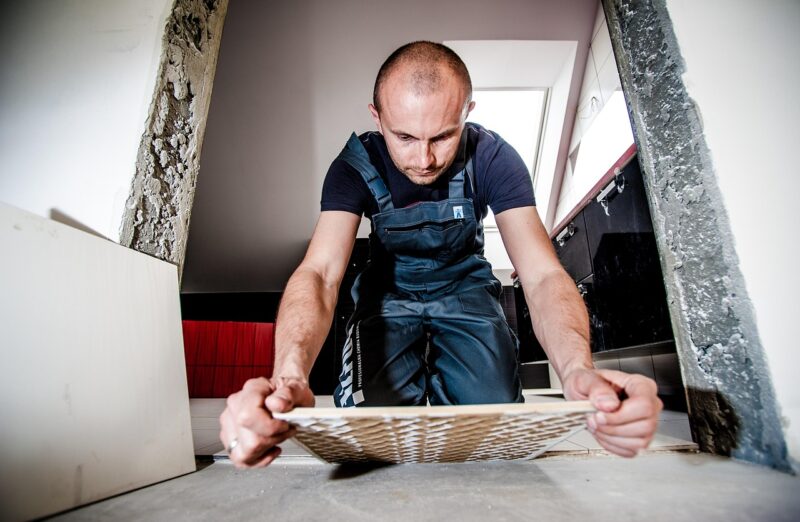
Flooring specialists
Flooring specialists ensure the comfort and functionality of Lincolnshire’s buildings by installing a wide range of surfaces, from hardwood and tiles to carpets and vinyl. In residential and commercial projects, they create durable and visually appealing floors tailored to client needs.
In specialist construction, they may install anti-static flooring for data centres or hygienic surfaces for healthcare facilities, meeting specific industry requirements.
Working as a flooring specialist is perfect for those with precision and a keen sense of design. Daily tasks include measuring spaces, cutting materials, and installing flooring with accuracy. Specialists often collaborate with clients to select suitable materials and finishes.
This trade offers diverse opportunities to work on projects ranging from modern offices to unique specialist facilities, providing both variety and satisfaction in the role.

Retrofit specialists
Retrofit specialists play a crucial role in upgrading existing buildings to improve energy efficiency and reduce environmental impact. They work on projects such as installing insulation, upgrading heating systems, and replacing windows with energy-efficient alternatives. Retrofit is vital in modernising older structures, supporting sustainability goals, and enhancing comfort for residents and businesses.
Their work contributes to renewable energy initiatives, heritage building upgrades, and residential developments, ensuring these projects align with contemporary environmental standards.
Working as a retrofit specialist is ideal for those passionate about sustainability and technical problem-solving. Daily tasks include conducting energy assessments, installing modern systems, and collaborating with design teams to implement upgrades seamlessly.
This trade is at the forefront of sustainable construction and offers opportunities to make a tangible difference in reducing carbon footprints while enhancing building performance and functionality.
Check out the different roles below

Joiners
Joiners craft and install wooden structures, such as doors, windows, staircases, and bespoke furniture. Daily tasks include measuring and cutting wood, assembling frameworks, and fitting components on-site. They collaborate with designers to achieve bespoke results and may work on restoration projects or create modern interiors. Joiners often use sustainable materials and advanced tools, balancing traditional craftsmanship with modern techniques. A relevant NVQ or City & Guilds qualification is often required, with ongoing training to maintain standards and understand new techniques.
Key roles: Carpenter, cabinet maker, site joiner.
Skills & attributes: Precision, creativity, attention to detail, manual dexterity, teamwork.
Scorecard
Salary Potential*
Flexible Hours
Flexible Location
Physicality
*based on a 40-hour working week

Bricklayers and plasterers
Bricklayers construct walls, chimneys, and other structural elements using bricks, stones, or blocks. Plasterers finish surfaces with plaster or render, preparing interiors and exteriors for painting or other finishes. Daily tasks include mixing materials, setting bricks, applying plaster, and ensuring structural integrity. These roles require physical stamina and adherence to safety protocols. NVQs in bricklaying or plastering are commonly required, and continual skills development and understanding of new techniques and materials is essential.
Key roles: Bricklayer, plasterer, restoration stone mason.
Skills & sttributes: Physical stamina, attention to detail, problem-solving, manual dexterity.
Scorecard
Salary Potential*
Flexible Hours
Flexible Location
Physicality
*based on a 40-hour working week

Electricians
Electricians install and maintain electrical systems, including wiring, circuit breakers, and smart technologies. Daily tasks involve reading blueprints, testing systems, and troubleshooting faults. Electricians are vital in ensuring safety and energy efficiency in homes, offices, and specialist facilities. A Level 3 Diploma or apprenticeship is required, along with periodic upskilling to stay compliant and up to date with industry regulations.
Key roles: Domestic electrician, industrial electrician, smart system installer.
Skills & attributes: Problem-solving, technical expertise, precision, safety awareness.
Scorecard
Salary Potential*
Flexible Hours
Flexible Location
Physicality
*based on a 40-hour working week

Plumbers
Plumbers install and repair water systems, heating units, and fixtures. Daily responsibilities include fitting pipes, fixing leaks, and testing systems for efficiency. In specialist settings, plumbers may work on renewable energy systems or medical-grade installations. NVQ qualifications in plumbing and gas safety certifications are mandatory, with regular updates required.
Key roles: Domestic plumber, gas engineer, renewable energy specialist.
Skills & attributes: Technical problem-solving, teamwork, precision, safety consciousness.
Scorecard
Salary Potential*
Flexible Hours
Flexible Location
Physicality
*based on a 40-hour working week
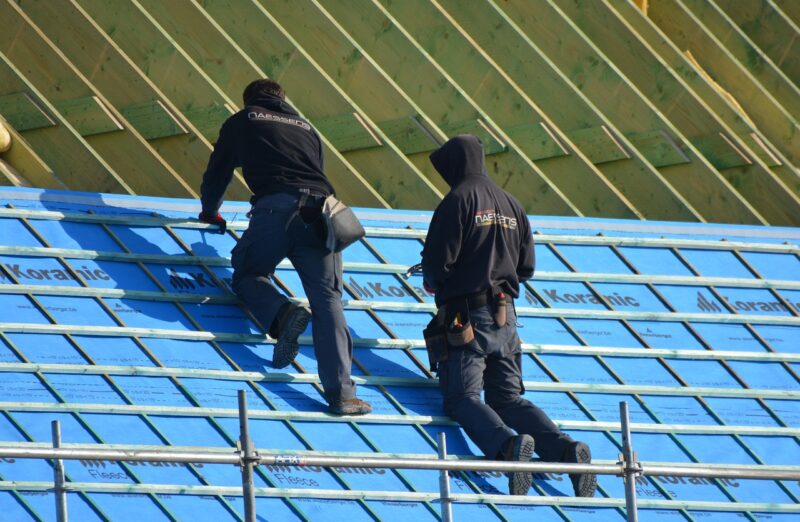
Roofing and cladding
Roofers, cladders, and scaffolders install and repair roofs, external cladding systems, and scaffolding structures, ensuring buildings are weatherproof, energy-efficient, and safe for construction teams. Daily tasks include measuring, cutting, and securing materials like tiles or metal sheets, as well as erecting scaffolding to provide access for workers. These roles are essential for heritage restorations, modern eco-friendly designs, and large-scale commercial projects. NVQs in roofing, cladding, or scaffolding, along with working-at-heights certifications, are often required.
Key roles: Roofer, cladder, green roof installer, scaffolder.
Skills & attributes: Physical stamina, precision, safety awareness, teamwork.
Scorecard
Salary Potential*
Flexible Hours
Flexible Location
Physicality
*based on a 40-hour working week

Painters and decorators
Painters and decorators apply finishes to walls, ceilings, and other surfaces, using techniques to create visually appealing and protective layers. Daily tasks include preparing surfaces, mixing paints, and applying finishes with precision. Specialist roles may involve heritage work or modern designs. A Level 2 Diploma or equivalent in painting and decorating is often required.
Key roles: Painter, decorative finisher, restoration specialist.
Skills & attributes: Attention to detail, creativity, steady hand, teamwork.
Scorecard
Salary Potential*
Flexible Hours
Flexible Location
Physicality
*based on a 40-hour working week

Waste and recycling specialists
Waste and recycling specialists manage the collection, sorting, and disposal of construction materials to minimise environmental impact. Daily tasks include operating recycling machinery, coordinating with site teams, and maintaining compliance with environmental regulations. Relevant certifications in waste management and safety are necessary.
Key roles: Waste manager, recycling operative, environmental technician.
Skills & attributes: Organisational skills, attention to detail, environmental awareness, safety consciousness.
Scorecard
Salary Potential*
Flexible Hours
Flexible Location
Physicality
*based on a 40-hour working week

Flooring specialists
Flooring specialists install various surfaces, including hardwood, tiles, and carpets. Daily responsibilities involve measuring spaces, cutting materials, and applying finishes. Specialists may also fit anti-static or hygienic flooring for healthcare or data facilities. An NVQ in flooring installation and relevant safety training are recommended.
Key roles: Floor fitter, carpet layer, specialist installer.
Skills & attributes: Precision, design awareness, physical stamina, teamwork.
Scorecard
Salary Potential*
Flexible Hours
Flexible Location
Physicality
*based on a 40-hour working week

Retrofit specialists
Retrofit specialists upgrade existing buildings to improve energy efficiency and reduce carbon footprints. Daily tasks include installing insulation, replacing outdated systems, and conducting energy assessments. These specialists are essential for making older homes, offices, and public facilities sustainable and cost-efficient. A Level 3 Diploma or equivalent in energy efficiency is typically required, along with ongoing training to keep up with emerging technologies and regulations.
Key roles: Retrofit installer, energy efficiency technician, retrofit project manager.
Skills & attributes: Technical expertise, problem-solving, precision, teamwork, environmental awareness.
Scorecard
Salary Potential*
Flexible Hours
Flexible Location
Physicality
*based on a 40-hour working week
In addition to the hands on roles that independent traders provide in the construction sector, they will also need to manage the operational side of their business, which includes filing safety certificates, organising schedules, invoicing clients, and maintaining compliance with industry regulations. These tasks are crucial for ensuring smooth operations and building a professional reputation. Admin work often involves using software for scheduling and accounting, as well as preparing legal documentation for projects and these are elements the tradesperson will often carry out themselves or through a trusted assistant/office manager.
For information on local courses and qualifications that could support your career in construction, please click here.

